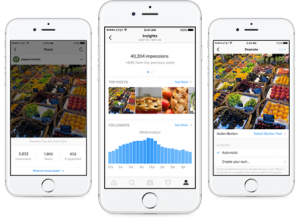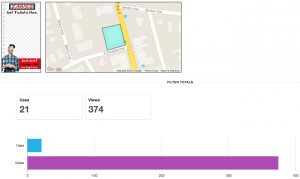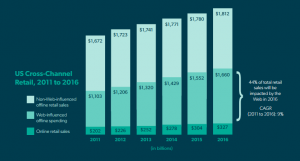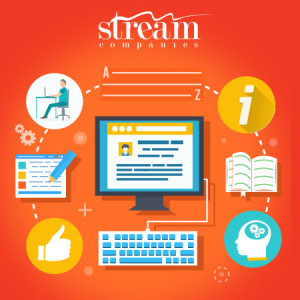The rising interest in applicant tracking systems should not come as a surprise. Our research has shown that the majority of modern-day companies do not, in fact, use ATS solutions for their recruitment needs. But this rise in interest has changed the landscape in recent years.
Recent developments seem to focus on utilizing disruptive technologies when these solutions are created, artificial intelligence chief among them. ATS solutions are becoming more popular, and rightly so. These SaaS products are capable of turning basic hiring processes into a well-defined strategy, one that requires very little effort to put in place.
A good hiring platform can help recruiters find, vet, and assess incoming talent much more effectively than keyword-focused research and LinkedIn browsing.
Beyond basic talent sourcing, AI-powered ATS solutions are able to rate and assess candidates, match them to the most relevant position and provide scoring insights into their skill, experience, cultural fit, and how likely they are to perform well in certain situations. It’s the modern way for companies to identify the most relevant and valuable talent at their disposal.
Candidate Quality
Candidate assessment can be a tricky step towards finding the talent you need. Very often, the drawbacks of certain candidates only manifest later on past the onboarding stage. However, having an AI doing most of the work in that regard increases the chances that the best available talent will always make it to the final list.
Furthermore, these AI-based applicant tracking systems may just be able to find candidate information that eludes a human. Either way, as your ATS performs its analysis of your entire candidate pool, your recruiters are able to focus on another task.
Saving Time
How do we do more in less time?
That’s the question on every company leader’s mind. It’s the catalyst for major change, most notably of which are digital transformation and daring marketing campaigns. Asking this question when working to improve internal processes usually points to the solution that is software technology adoption. When it comes to recruitment, ATS and recruiting software are key.
Companies need to begin viewing AI as an assisting workforce that works alongside their human workforce to achieve a certain goal. Following that same line of thinking, the tasks of assessing and scoring candidates, parsing resumes and gathering data are delegated to the ATS while the recruiters and HR professionals focus on another aspect, one that demands human attention far more than the processes outlined above.
Productivity
In this regard, productivity is the result of your success.
By adopting an ATS solution, you’ll be able to significantly improve your candidate quality. With raised quality, comes an increase in saved time, which in turn is a catalyst for productivity. It’s a domino effect that begins with the ATS taking over a handful of responsibilities.
Recruitment is known to be a sector that thrives on stress, deadlines, and quick decision-making. With demonstrated software results, a company stands to significantly boost their workforce’s productivity levels. Success breeds that mindset and ATS helps cultivate and maintain it properly.
AI as an assisting workforce
Once an ATS is able to leverage AI functionalities, undertake tasks on its own, and produce significantly beneficial results, it may just as well be considered an assisting workforce.
This simply means that it has the capacity to undertake certain responsibilities in the same manner that your human workforce would. Granted, its capabilities are somewhat limited but in the end, the ATS would be performing the same work that a recruiter would have to do without it, making your team a human workforce assisted by AI.
As far as an assisting workforce goes, AI-based applicant tracking systems are as good as it gets. Interns would often have to undertake these responsibilities, but this type of monotonous and repetitive tasks are known to breed doubt, increase employee dissatisfaction, and generally lead the person in question down the wrong path.
Employees that better match the roles they are hired for
Be it for your recruitment agency’s clients, or your own internal talent needs, a better match makes life much easier.
Applicant tracking systems that leverage artificial intelligence technology are built for the intricate and in-depth assessment that they are known for. The software is able to assess talent in more aspects than a human could. In fact, it would be more likely to notice a pattern in a candidate’s experience, spot a certain skill set, or even locate social media and other web data that could present the candidate in a completely different light.
The in-depth analysis of an ATS provides higher caliber talent, scored for their capabilities, and matched to the roles they are perfect for.
A different experience
Applicant tracking software reduces your time-to-hire by completely eradicating manual data input and screening. As a result of reduced time-to-hire, the candidate experience is significantly improved, as HR and recruiters have the time to respond to qualified candidates faster.
It would be far too easy to name the benefits of artificial intelligence in the applicant tracking system world. But then again the same can be said for any industry this technology is injected into. It’s a hallmark of improved efficiency, analysis based on machine learning and human behavior, and disruptive technology that is capable of catapulting your recruitment processes into the future.
Click here to explore our 14-day free trial.
Business & Finance Articles on Business 2 Community
(17)







